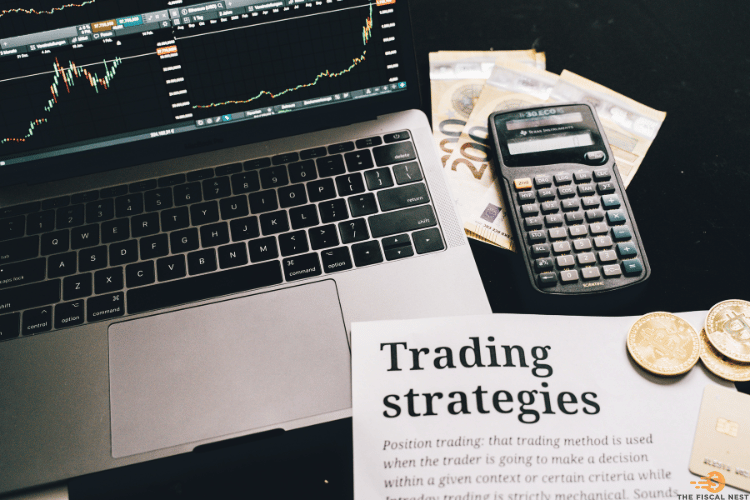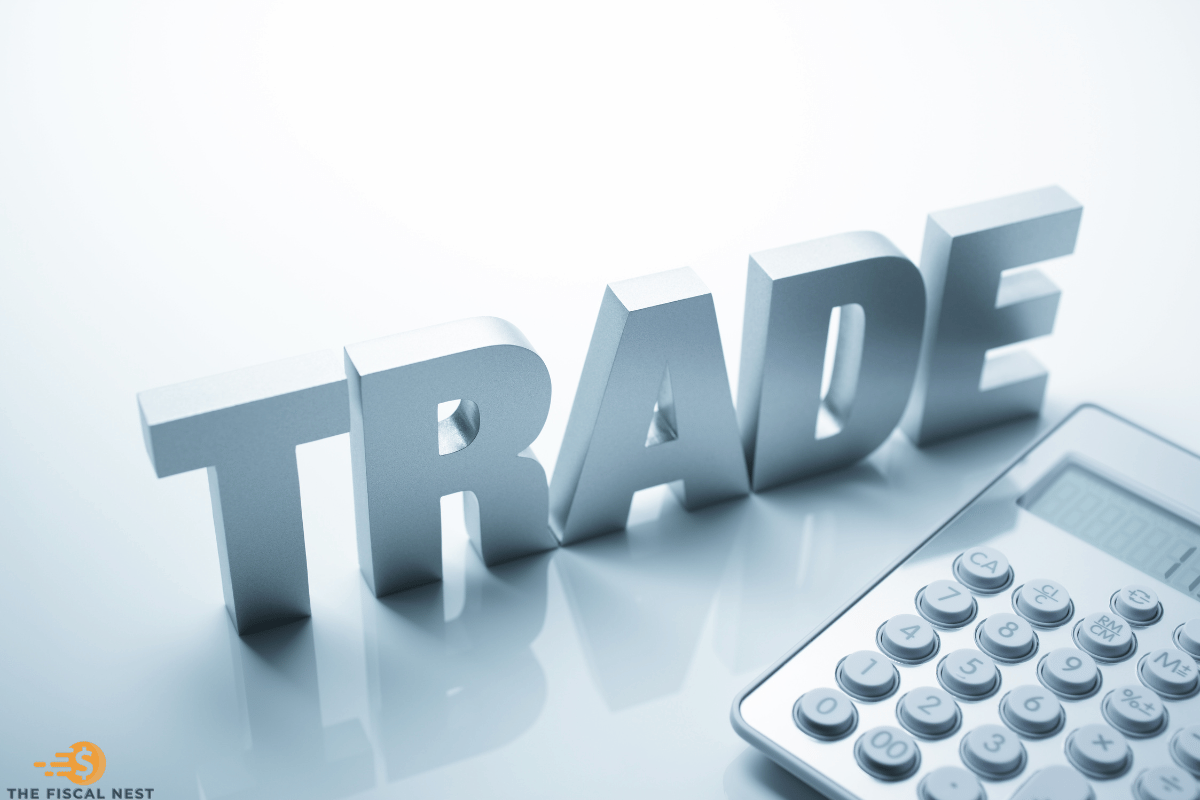In the modern business landscape, a trade calculator is an indispensable tool for navigating the complexities of financial transactions. These dynamic tools assess the viability and profitability of different trade scenarios. By considering variables like costs, pricing structures, and market trends, they provide invaluable insights into potential outcomes.
From determining the finest pricing strategies to evaluating the feasibility of investment opportunities, trade computers empower decision-makers with quantitative insights and informed foresight. Understanding these nuance calculators is vital for businesses looking to maximize efficiency, reduce risks, and achieve sustainable growth in today’s competitive markets.
What Are Trade Calculators?
Trade computers are specialized tools used in business and finance to assess and analyze different directions of trading activities. They are designed to help businesses make up-to-date decisions regarding pricing, profitability, risk management, and investment opportunities. Trade adders usually incorporate a range of variables such as costs, pricing structures, market trends, and potential outcomes to provide quantitative analysis and insights.
They can be used in a range of industries including retail, manufacturing, finance, and e-commerce to optimize strategies, evaluate trade scenarios, and maximize returns on investment. These calculators come in different forms, including software applications, online tools, and spreadsheets. Additionally, specialized financial models are tailored to specific industries or trading activities. Overall, exchange calculators play a crucial role in supporting decision-making processes and driving business success.
Understanding Trade Calculator: A Beginner’s Guide
Understanding Trade tools is a primer for individuals entering the realm of business and public finance. This comprehensive guide demystifies the concept of trade-adding machines. So, elucidating their pivotal role in strategic decision-making processes. Readers will embark on a journey to grasp the fundamental principles underlying trade computers and their practical applications in various industries. From deciphering pricing strategies to evaluating investment opportunities.
This guide equips beginners with the necessary knowledge to navigate complex financial landscapes with confidence. Through clear explanations and illustrative examples, novices will gain insights into harnessing the power of barter counter to optimize profitability, mitigate risks, and drive business growth. Whether exploring entrepreneurship or advancing in corporate settings. So, this beginner’s guide lays a solid foundation for understanding and leveraging the barter counter effectively.
Leveraging Commerce Calculators for Financial Analysis
Leveraging commerce calculators for financial analysis illuminates the strategic utilization of commerce calculators as indispensable tools in dissecting and optimizing financial endeavours. This insightful exploration delves into the multifaceted capabilities of trade computers. Moreover, empowering practitioners to dissect intricate financial landscapes with precision. Through sophisticated algorithms and customizable parameters, these calculators offer comprehensive insights into pricing strategies, risk assessment, and investment feasibility.
By harnessing the analytical power of trading calculators, professionals can unlock hidden opportunities, mitigate potential pitfalls, and enhance overall financial performance. With a focus on practical applications and real-world scenarios, this resource equips individuals with the skills and knowledge to leverage commerce calculators effectively. Furthermore, making informed decisions that drive sustainable success in today’s dynamic business environment.
Advanced Trade Calculator Techniques for Business Growth
Advanced trade adder techniques for business growth delve into the sophisticated strategies and methodologies necessary for businesses committed to thriving in today’s competitive landscape. This guide equips readers with advanced skills to leverage commercial calculators efficiently, facilitating better decision-making processes and driving sustainable growth. By mastering complex algorithms and customizing parameters. So, businesses can gain precision insights into pricing strategies. Additionally, risk management, and investment opportunities.
Dynamic pricing strategies make sure a competitive edge, while comprehensive risk analysis enables proactive mitigation measures. Integrating trading calculator insights into investment decisions optimizes portfolio performance and capital allocation. Furthermore, leveraging big data analytics and visualization techniques improves decision-makers ability to extract actionable insights from vast datasets.

Through real-world case studies and future trend analysis, this guide provides practical guidance on adapting advanced techniques across diverse industries. Ultimately, mastering advanced commercial calculator techniques empowers businesses to steer uncertainties. Additionally, seize opportunities, and achieve enduring success in today’s dynamic marketplace.
Common Mistakes to Avoid When Using Calculators for Trade
When using trade tools, it’s vital to steer clear of common pitfalls to ensure accurate and beneficial outcomes. Avoid overlooking data accuracy, misinterpreting results, or relying solely on calculators without considering expert advice. Incorrect formulas or neglecting to update calculations can lead to flawed decisions.
Likewise, overcomplicating analysis or disregarding substitute scenarios can hinder clarity and effectiveness. Adequate training and understanding, along with a balanced reliance on both calculators and human judgment, are important for successful utilization. By sidestepping these errors, businesses can harness the full potential of the market meter for better and more profitable decision-making.
Optimizing Trade Evaluator for Different Business Models
Customizing trade evaluators to match diverse business models is necessary for maximizing their effectiveness. Here’s how to optimize trade evaluators for different business models:
- Understand Specific Needs: Identify unique requirements and objectives of each business model to make sure the trade adder addresses them effectively.
- Customize Parameters: Adjust calculation parameters to line up with the specific variables and dynamics of the business model. Such as pricing structures, market trends, and cost considerations.
- Integrate Industry Insights: Incorporate industry-specific data and benchmarks into the trade tools to improve accuracy and relevance for the chosen business model.
- Simplify or Complexify as Necessary: Streamline or add complexity to the trading calculator’s algorithms. Moreover, functionalities are based on the complexity of the business model and the level of analysis required.
- Incorporate Flexibility: Design the deal calculator with the flexibility to accommodate changes in the business model over time. So, ensuring its continued relevance and usefulness.
- Provide User-Friendly Interface: Develop an intuitive user interface that facilitates easy navigation and input of data, catering to users with varying levels of technical expertise.
- Test and Iterate: Conduct thorough testing and gather feedback from users to refine and iterate on the business exchange gauge. Moreover, making sure it effectively serves the needs of the selected business model.
- Offer Support and Training: Provide comprehensive support and training to users on how to utilize the deal calculator optimally within the context of their specific business model.
By optimizing business exchange gauges to line up with various business models, organizations can leverage these tools effectively to drive strategic decision-making, improve profitability, and achieve sustainable growth.
Integrating Business Trading Tool into Your Financial Strategy
Incorporating business calculators into your financial strategy is a strategic move that can considerably improve decision-making processes and overall business performance. This guide explores how to flawlessly integrate trading calculators into your financial strategy. So, making ensures optimal utilization and maximum impact.

1. Assessing Financial Needs and Objectives:
- Identifying key areas where trade adders can add value
- Setting clear objectives for financial integration
2. Selecting the Right Trade Computer:
- Evaluating various types of trade computers available
- Selecting a calculator that aligns with your business needs and goals
3. Data Integration and Analysis:
- Integrating relevant data sources into the trade adding machine
- Conducting comprehensive analysis to extract meaningful insights
4. Tailoring Strategies Based on Calculated Insights:
- Adapting financial strategies based on trade adder recommendations
- Implementing changes to improve profitability and efficiency
5. Monitoring and Adjusting Strategies:
- Daily monitoring of the performance metrics and key indicators
- Making timely adjustments to financial strategies based on trading calculator outputs
6. Leveraging Advanced Features and Techniques:
- Exploring advanced features of trade tools for deeper insights
- Utilizing advanced techniques to fine-tune financial strategies
7. Training and Education in Trade Calculator:
- Providing training and education to employees on trade machine usage
- Making sure that team members understand the importance of integration
8. Continuous Improvement and Innovation:
- Encouraging a culture of continuous improvement in financial strategy
- Exploring innovative ways to enhance business calculator integration for long-term success
Conclusion: Mastering Trade Evaluator Tactics for Success
In conclusion, mastering trading computer strategies is necessary for achieving success in today’s dynamic business landscape. By harnessing the potential of these tools, businesses can drive profitability decisions, strong strategies, and drive profitability. Through alert consideration of data precision, avoidance of common mistakes.
Customization for different business models and business calculators become invaluable assets. Empowering teams with adequate training and support ensures their effective utilization. Ultimately, by mastering trade computer tactics, organizations gain a competitive edge and navigate uncertainties with confidence. So, pave the way for sustainable growth and prosperity in the ever-evolving marketplace.
FAQs
What is a business calculator?
A trading calculator is a specialized tool used in business and finance to examine trading activities. They help in decision-making by assessing costs, pricing structures, and market trends to calculate profitability and risk.
How can market calculators benefit businesses?
Market calculators optimize pricing strategies, evaluate investment opportunities, and restructure financial analysis. They improve decision-making, maximize profitability, and improve risk management by providing accurate insights into trade scenarios and financial outcomes.







